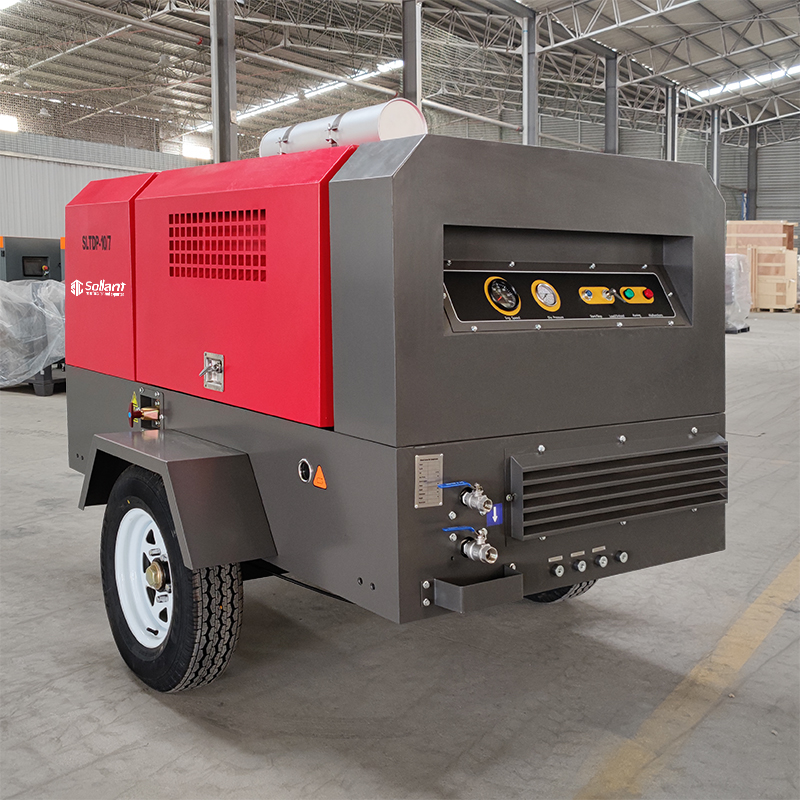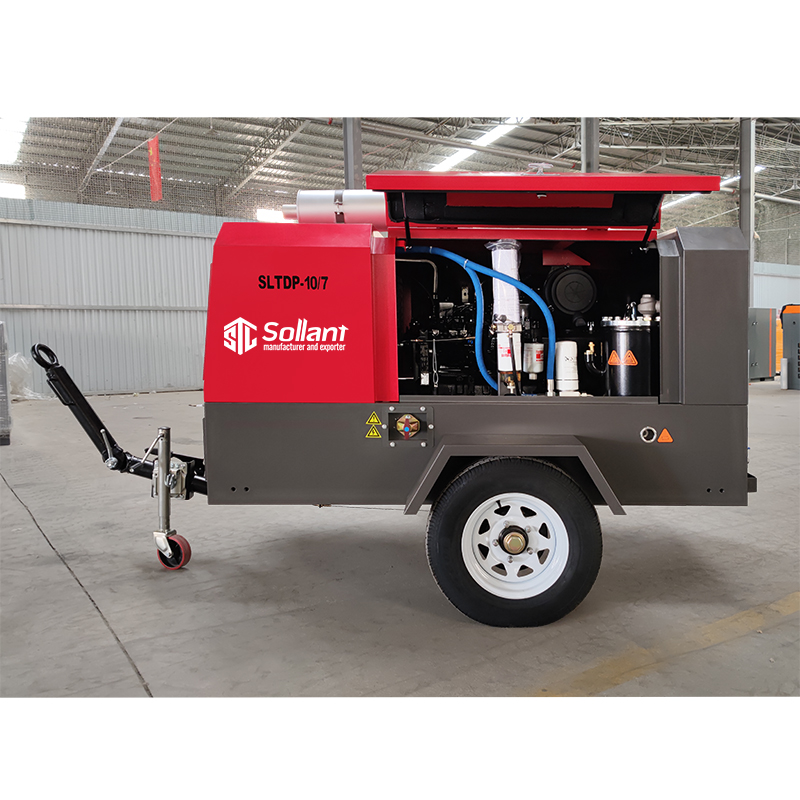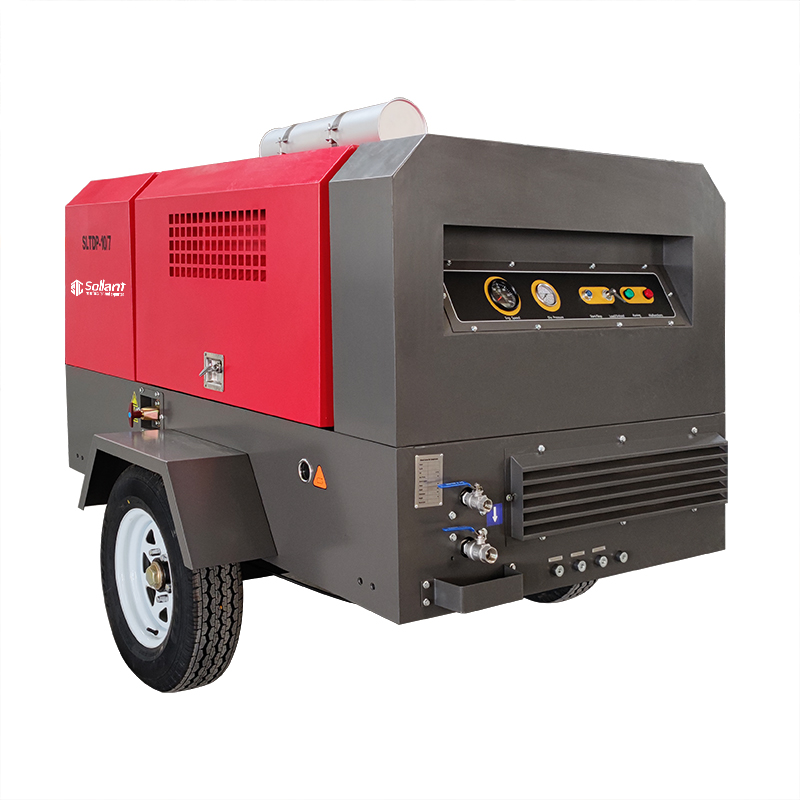Why Does a Diesel Air Compressor Shut Down Automatically?

A diesel air compressor is a reliable and powerful piece of equipment used across various industries. However, if it starts shutting down automatically, it can be frustrating and disrupt your work. Understanding the reasons behind these automatic shutdowns is crucial to keep the compressor running smoothly and to prevent potential damage. In this article, we’ll explore common causes of automatic shutdowns in diesel air compressors and how to address them.
1. Low Fuel Level
One of the most common reasons a diesel air compressor shuts down automatically is a low fuel level. Diesel engines require a steady supply of fuel to operate. If the fuel level drops too low, the engine may shut off to prevent damage. Regularly check the fuel level before starting the compressor and refill the tank as necessary. It’s also important to ensure that the fuel gauge is functioning correctly, as a faulty gauge can give inaccurate readings and lead to unexpected shutdowns.

Diesel Air Compressor
2. Overheating
Overheating is another frequent cause of automatic shutdowns in diesel air compressors. The engine is designed to shut off automatically if it reaches a certain temperature to prevent severe damage. Overheating can be caused by several factors, including a malfunctioning cooling system, low coolant levels, or a dirty radiator. Regular maintenance of the cooling system, including checking the coolant level and cleaning the radiator, can help prevent overheating. Additionally, ensure that the compressor is operated in a well-ventilated area to allow proper airflow.
3. Oil Pressure Issues
Diesel engines rely on oil to lubricate moving parts and prevent excessive wear. If the oil pressure drops too low, the engine may shut down automatically to avoid damage. This can happen if the oil level is too low, the oil pump is malfunctioning, or if there’s an oil leak. Regularly check the oil level and top it up as needed. Also, inspect the compressor for any signs of oil leaks and address them immediately. Using the correct grade of oil as recommended by the manufacturer is also crucial for maintaining proper oil pressure.

Diesel Air Compressor
4. Air Filter Blockage
An air filter blockage can cause a diesel air compressor to shut down unexpectedly. The air filter is responsible for keeping dust and debris out of the engine. If it becomes clogged, it restricts airflow, leading to inefficient combustion and eventually causing the engine to shut down. Regularly inspect and clean or replace the air filter to ensure proper airflow and prevent automatic shutdowns. Operating the compressor in a clean environment can also reduce the frequency of air filter blockages.
5. Faulty Sensors or Electrical Issues
Modern diesel air compressors are equipped with various sensors that monitor the engine’s performance, including temperature, pressure, and fuel levels. If any of these sensors fail or give incorrect readings, the compressor may shut down automatically as a protective measure. Additionally, electrical issues such as faulty wiring or a weak battery can cause the compressor to shut off unexpectedly. Regular inspections of the electrical system and sensors can help identify and fix these issues before they cause a shutdown.

Diesel Air Compressor
Conclusion
Automatic shutdowns in diesel air compressors can be caused by several factors, including low fuel levels, overheating, oil pressure issues, air filter blockages, and faulty sensors or electrical problems. Understanding these potential causes allows you to take preventive measures and ensure your compressor operates smoothly. Regular maintenance, including checking fuel and oil levels, inspecting the cooling system, and monitoring the air filter, can significantly reduce the likelihood of automatic shutdowns.
For more detailed advice on maintaining and troubleshooting diesel air compressors, visit our website and explore our other expert articles. Keeping your equipment in top condition will help you avoid downtime and ensure reliable performance in your industrial operations.



